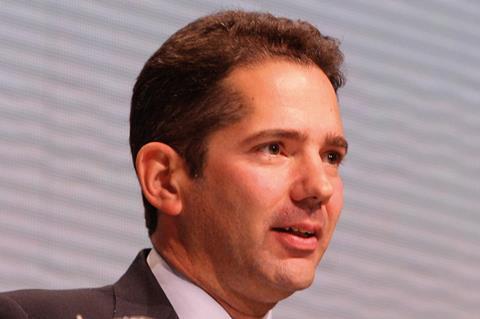Sir David Clementi’s vision of a liberalised legal services market really began to take shape a decade ago this week with the creation of the first SRA-licensed alternative business structures. So how much has changed? Joanna Goodman reports
The low down
When SRA-licensed alternative business structures arrived in March 2012, traditional law firms were braced for the arrival of ‘Tesco law’. They expected big brands to use the liberalisation of legal services to create new trading models that would be fed work through the prowess of large-scale marketing operations. The public trusted the brand, pricing and service of their favourite supermarkets above that of traditional law firms. Or so went the argument. And there has been innovation. There are law firms quoted on the stock market and some ‘one-stop shops’ combine legal advice with other services, for example. But it would be overstating matters to say this has been a revolution. Perhaps the big story here is the way traditional firms adapted and invested to compete with the threat – real and perceived – that ABSs posed.
Alternative business structures (ABSs) were introduced as part of the Legal Services Act reforms aimed at creating a liberalised legal market while still protecting consumers of legal services. ABSs are legal services businesses that can be owned and managed by non-lawyers, either through investment or as a partner or director.
This month it is 10 years since the Solicitors Regulation Authority issued its first solicitor-led ABS licences to engage in regulated reserved legal activities, opening up what had previously been a closed profession to new, commercial entrants. It is worth noting, however, that the very first ABSs, which opened their doors on 6 October 2011, were licensed by the Council for Licensed Conveyancers.
In March 2012, justice minister Jonathan Djanogly told the Gazette: ‘These changes will allow [UK legal services] to reach new heights as solicitors’ firms develop new markets, seek external investment and join up with other businesses to offer different products to consumers and provide opportunities for growth.’
Access to legal services was an important consideration in the move to modernise and commoditise law. In 2012 there was much of talk about ‘Tesco law’. This was interpreted in two ways: that legal services would become as easy and affordable as going to the supermarket; and literally that supermarkets would start selling legal advice.
'Our customers come to us with problems that typically require some element of legal advice but are best solved by integrating that expertise with legal operations, technology, and services at scale'
Nicole Auerbach, ElevateNext
Indeed, the first solicitor-led ABS was Co-op Legal Services, which used its new licence to diversify into family law to complement its existing services in non-reserved activities. The other two were John Welch & Stammers, a traditional law firm which appointed its non-lawyer practice manager as managing partner, and husband-and-wife practice Lawbridge Solicitors, whose ABS licence enabled them to become partners in the business, notwithstanding the fact that only one of them was a solicitor and the other managed the practice.
For the first few years, many ABS licences were simply law firms which wanted to appoint non-lawyer managers. For most ABSs, particularly in the small-to-medium market segment, the rationale has been around ownership and risk rather than building new business models. In addition, becoming a limited company limits liability and changes the tax thresholds. This means a law firm may become a limited company for tax-efficiency purposes but operate a partnership ethos.
SRA statistics show that the number of ABS licences continues to increase, and now accounts for around one in 10 firms. Most ABSs are incorporated companies, followed by sole practitioners (with non-lawyer management), LLPs and partnerships.
Are ABSs living up to the Legal Services Board’s original vision that they would transform the legal services market? The short answer is that it has taken the best part of a decade for the legal services supertanker to turn, and it is still turning.
Four lenses of liberalisation
In 2021 a Boston Consulting Group report looked at the effects of liberalisation in the legal services market in England and Wales through four lenses, which reflect a similar list of expectations published by the LSB in 2012:
- Competition: deregulation should increase competition.
- Flexible business structures: lower barriers to entry and broader/more varied service offerings.
- Consumer benefits: lower prices and better-quality services; more transparency.
- Higher risks around the rule of law being compromised, geographic availability of legal services, increased regulatory burden.
American imitators
Having watched the UK’s ABS evolution, the US is now working towards legal market liberalisation state by state. Arizona and Utah are leading the way, with New York, California, Illinois and Florida exploring the options. So far, Arizona is the only state that is granting ABS licences. In January 2022, law company Elevate was granted an ABS licence by the Arizona Supreme Court, making it the first non-lawyer-owned company in the US with an integrated law firm, and the first with ABS licences in the UK and the US. Elevate’s integrated legal services were previously unable to accommodate reserved activities so potential customers were turning to the Big Four instead.
Nicole Auerbach, who leads ElevateNext (Elevate’s legal services division), explains: ‘Our customers come to us with problems that typically require some element of legal advice but are best solved by integrating that expertise with legal operations, technology and services at scale. They now have a choice they previously lacked – to use a single company for all “run the company” work that requires practising lawyers at the helm or in the mix.’ Chairman and CEO Liam Brown stresses that Elevate does not compete with traditional law firms. ‘Law firms collaborate with Elevate as a strategic partner to offer their clients an effective alternative to the Big Four,’ he says.

Increasing competition
Crispin Passmore, who held senior roles at both the SRA and the LSB before switching to consulting, highlights the broad range of ABSs now operating in England and Wales. These include listed companies (for example Gateley, DWF); private equity-backed businesses (ElevateNext UK); online platforms (Legal Zoom); US law firms (Reed Smith); alternative providers (Farewill, Amicable); and multidisciplinary practices mixing law and other professions (the Big Four, Knights).
‘In the UK the unregulated sector has thrived and delivered good services – there is plenty of evidence on their quality being as good as law firms. And customers are voting with their feet,’ observes Passmore.
Passmore sees one of the biggest effects of liberalisation as the rise of the multidisciplinary practice. For example, the Big Four helped to drive change across the profession with ABS licences enabling them to build an integrated global model combining law, consulting, accountancy and outsourcing. Larger law firms responded by expanding their offerings into managed legal services, consultancy and legal technology. And it is not just global firms. Moore Kingston Smith is a mid-market multidisciplinary practice offering business advisory, audit, legal, outsourcing and tax services out of its six offices in and around London. This is driven by demand – corporate clients are looking for a one-stop shop for legal and advisory services.
Elevate became the first legal services provider to acquire ABS licences in the UK and the US for exactly that reason. Although 80% of its core business does not involve reserved activity, its clients value a streamlined, multidisciplinary service, it says. ‘As a law company (our name for an ALSP) we were unable to integrate the practice of law into our offerings prior to gaining our ABS licences, so this has been game changing for us,’ explains president and co-founder John Croft. ‘Being able to offer lawyer-led, tech-enabled services is something our customers have been asking for and we are now able to deliver in both the UK and the US.’
In parallel with the growth of multidisciplinary practices and one-stop shops, like Rocket Lawyer and Legal Zoom, retail/consumer law has seen the growth of online businesses that combine unregulated firms with regulated solicitors. For example, Farewill has built its online wills and probate service around death, not law, delivering its legal work through a regulated subsidiary. Amicable is packaged around making separation less contentious.

Branding barrier
Tony Williams, principal at legal consultancy Jomati, observes that the number of genuinely different business structures emerging from deregulation is disappointing: ‘Tesco law didn’t happen, and Co-op law had difficulties.’
‘Tesco law’ was always a rather misleading moniker for the commoditisation of law in any case – the eponymous supermarket never showed any interest; though Co-operative Legal Services, which shipped heavy losses before reining in its ambitions, most certainly did. Other household-name brands – Saga, BT, the AA – also dipped a toe in the water, with distinctly mixed results.

Williams says lack of investment in branding explains why ‘Tesco law’ as a concept never really took off: ‘There has never been a serious, concerted branding campaign in law. Even when we saw campaigns from QualitySolicitors and Slater & Gordon, which ultimately failed in their attempts to take over the market, they did not stand comparison with retail brands. The closest was Slater & Gordon, but after the disastrous Quindell move it has never had the budget for a serious advertising campaign.’
Paul Bennett, partner at Bennett Briegal, an adviser to professional services, believes that the ABS concept is still widely misunderstood. ‘Law firms talk about becoming an ABS as if it were an entirely new structure, but the real differences are around ownership and funding. In the small-to-mid-tier space, not much has changed. It is still about involving non-lawyers, whereas at the larger end of the scale, where there have been some high-profile successes, the rationale is around access to external finance.’ Consequently, Bennett is handling more enquiries from private equity and angel investors looking for opportunities in the legal sector.
Timeline
- 2012 – the SRA (pictured) granted its first alternative business structure licences. By 2019/20 there were 945, representing about one in 10 law firms. Most of them are limited companies

- 2015 – Gateley became the first law firm to list on the London Stock Exchange, followed by The Ince Group, Keystone Law, Rosenblatt Group plc, Knights and DWF Group
- 2015 – Cahill Gordon & Reindel became the first US law firm to set up an ABS in the UK
- 2021 – first ABSs approved in the US by Utah and Arizona
- 2022 – law company Elevate was granted an ABS licence by the Arizona Supreme Court, making it the first non-lawyer-owned company in the US with an integrated law firm, and the first with ABS licences in the UK and the US
Firms were ready to compete
Another limitation on the effect of ABSs that perhaps was not anticipated 10 years ago is law firms’ ability to adapt. ‘The fact that we haven’t seen many new models emerge is an indication that law firms have got their act together. They saw the potential and the risk, and invested in people and technology,’ observes Williams. ‘If Covid had struck 10 years earlier, no law firm would have been able to operate remotely. The fact that they had invested significantly over the years, in response to market pressures, meant that they were able to shift online almost seamlessly.’
Furthermore, law firms’ response to business pressures has to some extent closed down the scope for new entrants. ‘While there is a lot of talk about the partnership model being broken, it is very adaptable and creates a strong level of commitment,’ says Williams. And it is important not to ignore the fact that law firm profitability has continued to increase, in a difficult business and competitive environment, which included a global pandemic. ‘Clients are still willing to pay a premium for the relentless attention they get from law firms,’ he adds. Liberalisation too has presented new routes to success: for example, some publicly listed law firms have prospered, such as London Stock Exchange pioneer Gateley. ‘The most successful listed legal business is Keystone, which is not a traditional model – it is a virtual platform. But we have not seen the seismic change that we all feared. It has been more evolutionary.’
'Firms that would traditionally have been looking at private equity and large-scale growth via the ABS route are now looking to consolidate and merge so that they can exit via a listing'
Paul Bennett, Bennett Briegal
Currently there are only a few law firms publicly listed in their own right. Gateley’s IPO in 2015 was followed by The Ince Group, Keystone Law, Rosenblatt Group plc, Knights and DWF Group. Mishcon de Reya voted in favour of listing last year, but this has been postponed. National consumer firm Irwin Mitchell was reported to have been contemplating an IPO last year, but this was not confirmed. More may be in the pipeline. In November 2021, litigation funder Harbour published research indicating that around a third of law firms are contemplating listing on the stock market to fund expansion.
Bennett has seen the mood towards listing change in the past two or three years: ‘Perhaps the impact of ABSs will be less transformative than anticipated as firms that would traditionally have been looking at private equity and large-scale growth via the ABS route are now looking to consolidate and merge so that they can exit via a listing.’
Higher risks?
There is little evidence that non-lawyer ownership has increased professional risk, which was a big concern in the wake of Clementi’s report. SRA disciplinary records show that ABSs fare no better or worse than traditional law firms. However, the SRA has the power to impose higher fines on ABSs than law firms, which means that when there are incidents, they are more likely to be reported. In January, Mishcon de Reya, which is an ABS, was fined £232,500 for breaches relating to money laundering rules. However, Passmore observes that the largest fines have involved traditional lawyers and firms, with the Post Office scandal being a case in point. Bennett believes that liberalisation has been a success because it has boosted professionalism in legal services management from the mid-tier upwards, which improves firms’ and ABSs’ risk profile: ‘It is the same business, with the same professional obligations, regulations and insurance. The only thing that has really changed is whose money is behind it.’

Passmore believes that liberalisation is driving legal services in the right direction – because new services tend to be organised around clients’ problems and law firms are rising to the challenge and shifting their focus too. He uses Pinsent Masons’ strapline ‘a professional services business with law at the core’ as an indicator of how law firms have changed. Meanwhile, the influx of capital continues to open up the possibilities for listed companies and new ventures.
Williams is less enthusiastic. While noting that the UK is a trailblazer in legal market liberalisation, and that relaxing regulations and admitting new entrants has encouraged firms to become more commercial and business-like, he sees it as only as a guarded success – not the revolution that was anticipated.
Bennett thinks the supertanker is still turning and continues to be fuelled by external investment. ‘Private equity has been the game-changer. But the large ABSs need the right management infrastructure to become investible. Financially, legal is a more sophisticated market than it was 10 years ago, and in another 10 years it will have transformed again, with more PE funding and listed companies. The evolution never stops and ABSs have helped to create the environment for change.’
Joanna Goodman is a freelance journalist
































5 Readers' comments